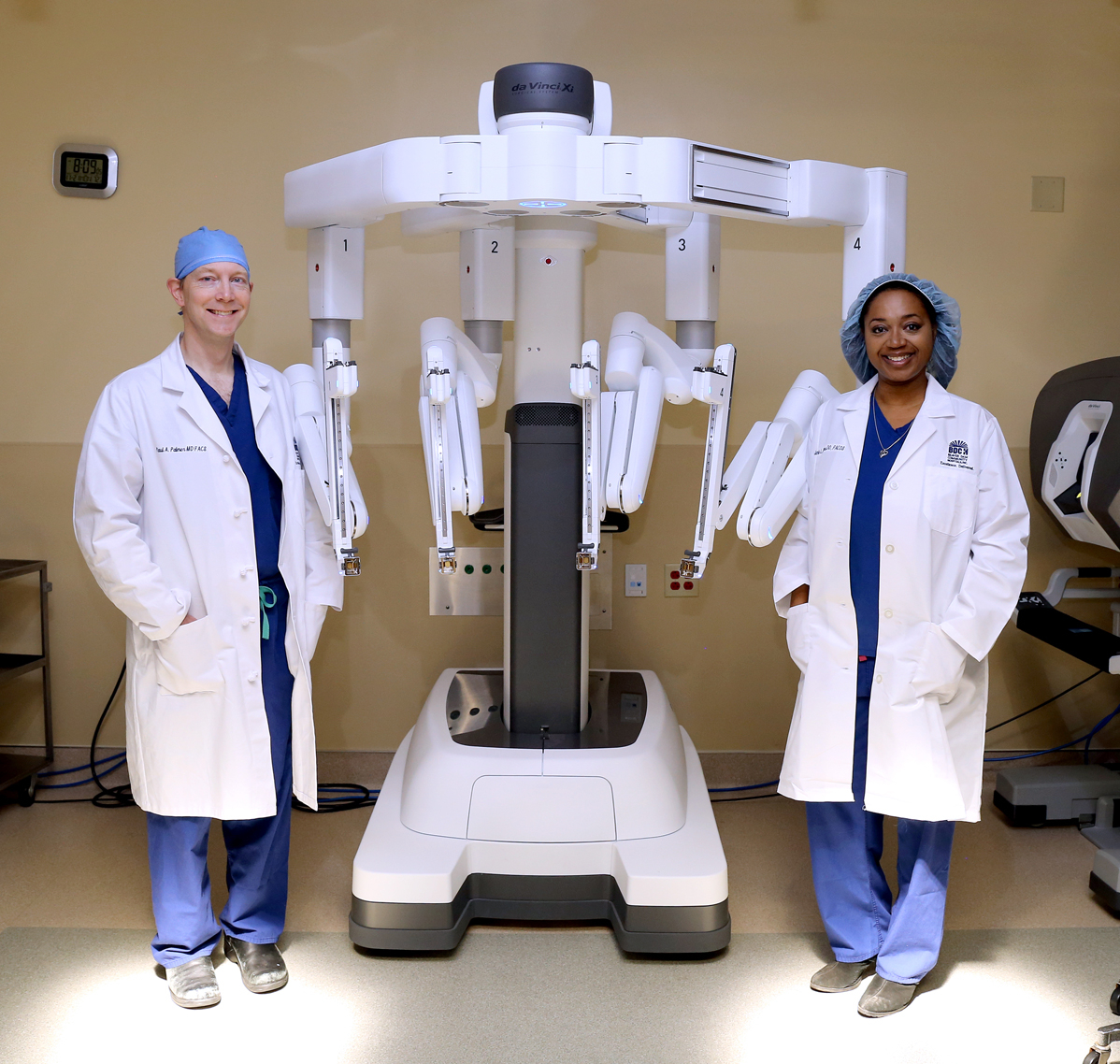MMC-BD NEWS
For more information about Marshfield Medical Center-Beaver Dam or to set up an interview, contact Dan Baulch at 920-887-4152 or baulch.dan@marshfieldclinic.org.
Rural Surgeons Embrace Community Health
The best in care, close to home. People in rural areas know hospitals are an asset to the community, but they may not realize the high quality of care and experience the doctors, nurses and clinicians offer. Rural hospitals like Beaver Dam Community Hospitals, Inc. (BDCH), are well equipped to meet the needs of the community, offering access to top surgeons and technologies close to home.
While recent studies show the United States facing a shortage of general surgeons, BDCH has a staff of talented surgeons, including Dr. Paul Palmer and Dr. Janie Myers. Dr. Palmer has been in Beaver Dam for 16 years and Dr. Myers joined BDCH in 2016 to start the robotic surgery program. Both surgeons believe patients would be surprised by the high level of care they have access to right in their backyard.
“Patients often don’t realize BDCH is a state-of-the-art hospital, with state-of-the-art surgeons and state-of-the-art equipment,” said Dr. Palmer. “Beaver Dam Community Hospital has the region’s most advanced minimally invasive laparoscopic general surgery procedures using the daVinci Surgical System, which provide smaller incisions, reduced scarring and quicker recovery.”
Proximity plays an important role in access to care. As people age, they may have challenges with transportation, making it difficult to get to a hospital no matter the distance. Rural hospitals offer many of the same services as big hospitals, including surgery. Patients can’t always plan when they need a surgical procedure, making access even more critical. A University of Michigan study published in the Journal of the American Medical Association found that for common surgeries, rural hospitals may be safer and less expensive than their larger counterparts.
Surgeons at a community hospital are able to provide a different, more personal level of care. At a larger hospital, patients may interact with a number of different doctors. “As a surgeon in a rural community, you get to know your patients very well,” said Dr. Myers. “You see them out in the community almost every day. It’s nice to see first-hand the impact you have on your patients.”
Living and working in a smaller community has its advantages. Doctors have the opportunity to establish themselves as active members of the community. They can see a patient through an entire procedure - before during and after surgery - ensuring they receive the best care possible. Patients appreciate and trust their doctors in a way that is different than an urban hospital setting. “We love the opportunity to take care of our own and make sure they are doing better,” said Dr. Myers.
Surgeons at BDCH take a great deal of pride in their community. “Physicians here are truly interested in improving the health of this community,” said Dr. Palmer. There is a great emphasis on the various aspects of community health. Through initiatives like the Blue Zones Project, BDCH can have a community-wide impact on the overall health and well being of its citizens.
Rural communities should have confidence in the highly-skilled surgical teams available at their local hospital. If they need a surgical procedure, the care teams are committed to delivering excellent care not just during surgery, but before and after, as well.
“I’m passionate about doing the right thing for my patient each and every time. That’s me. I’m very focused on making sure they’re cared for in the best possible way,” said Dr. Myers.